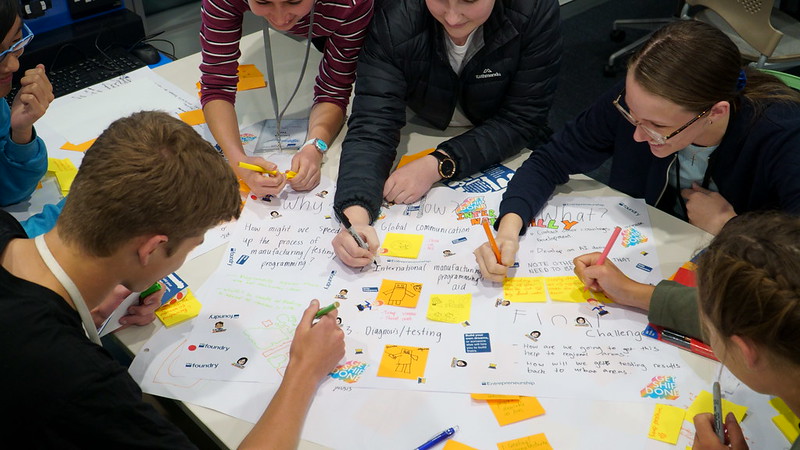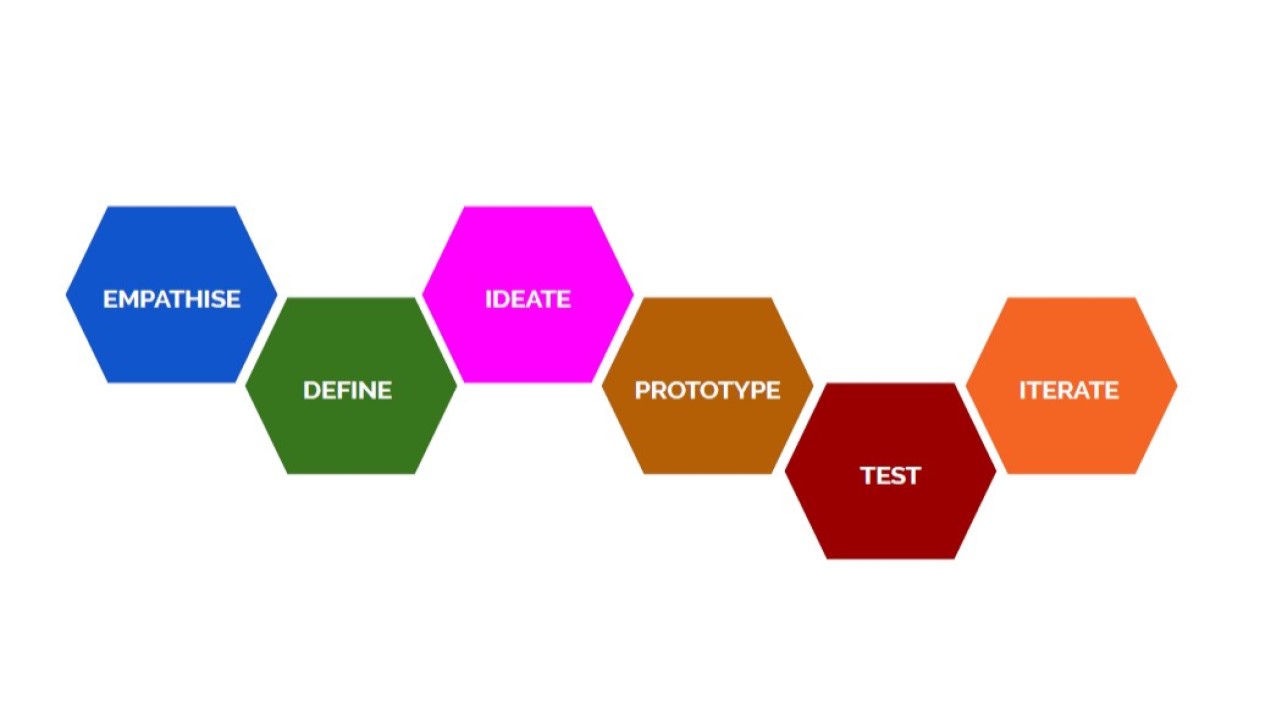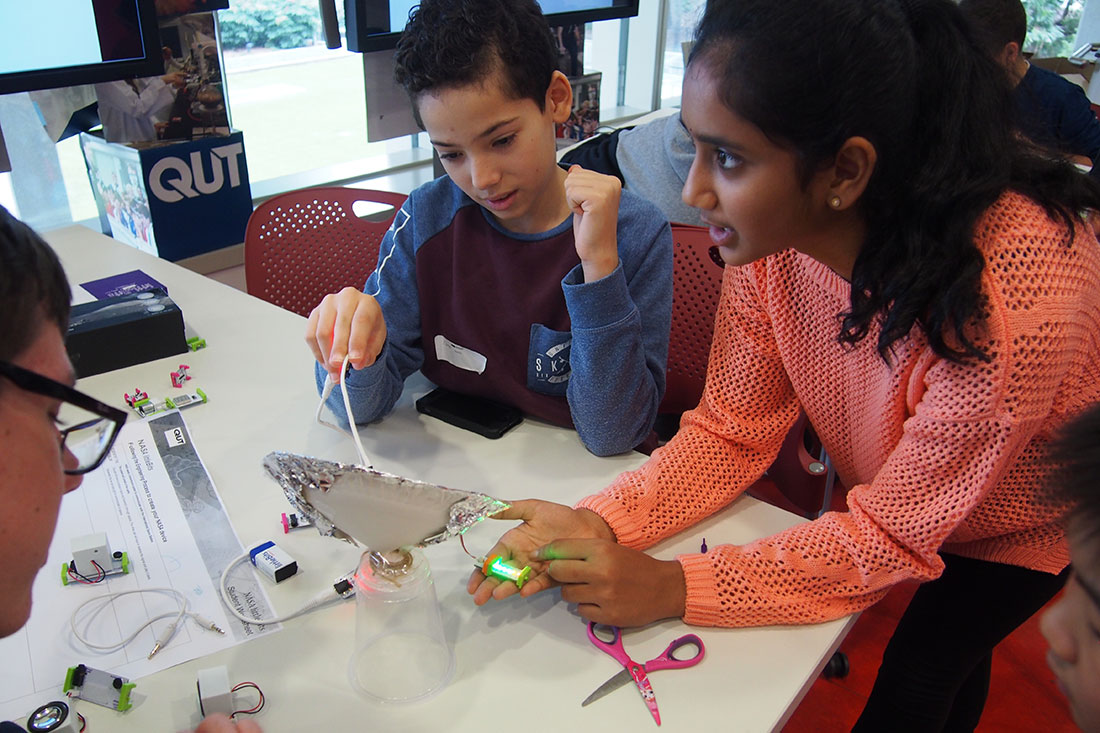Workshop overview
|
Year level
|
7-12
|
|
Capacity
|
16-32 students. If you want to bring more students, email highschool.workshops@qut.edu.au
|
|
When
| School days: Monday, Tuesday, Thursday and Friday
|
|
Duration
|
Half-day
|
|
Where
|
QUT Gardens Point, Science and Engineering Centre
|
|
Cost
|
Free (late cancellation fees apply. See terms and conditions).
|
Workshop details
Ideas to change the world brings together the entrepreneurial skill development of our former Iterate: problem-solving using design thinking workshop, with the practical hands-on appeal of prototyping using littleBits electronic snap-together circuitry.
In this workshop, students will apply the UX (user experience) design process to develop an innovative and entrepreneurial solution to a societal problem. Students will be asked to identify a challenge to solve, and in a rapid ideation session following design thinking principles and the design process, they will generate a range of possible solutions. In their teams, options will be clustered, ranked and voted upon. A 'pitch' or prototype will be created for the solution and teams will present this to persuade peers how they can solve the real-world problem.
Applying a UX design process to societal challenges can enhance existing science inquiry skills and engineering design processes, and foster creativity and innovation. Based on workshops designed by QUT Entrepreneurship, Ideas to change the world is an immersive experiential, problem-solving challenge similar to sprints, challenges and boot camps run by tech giants like Google and Amazon. It helps to develop students UX designer and entrepreneurial mindsets and their 21st century skills by following the design thinking processes of empathise, define, ideate, prototype, test and refine.
Topics covered in this workshop:
- entrepreneurship
- science inquiry skills
- engineering design process
- electrical circuitry
- design and technologies
- communication.


